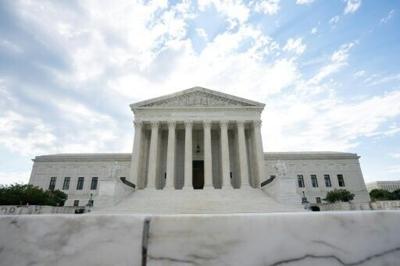Supreme Court Ruling Broadens Presidential Power — Trump Prepares to Leverage It
A recent 6‑3 Supreme Court decision limiting nationwide injunctions significantly boosts presidential authority. President Trump signals plans to capitalize on the ruling raising concerns over judicial oversight .
Advertisement
Advertisement
Advertisement
On June 27 2025 the US Supreme Court delivered a landmark 6‑3 decision in Trump v Casa Inc significantly curbing the power of federal district courts to issue nationwide injunctions against executive orders . Justice Amy Coney Barrett writing for the majority ruled that such courts may only grant injunctions affecting the parties directly involved in a case with rare exceptions .
This decision strips the judiciary of a powerful tool that previously enabled lower courts to freeze federal policies across the entire country while legal challenges played out—especially during times of politically divisive executive actions.
Also Read : Breaking Down the Ending of Squid Game Season 3
Focus on Birthright Citizenship Order
The case arose from Trump’s controversial executive order seeking to redefine birthright citizenship a principle rooted in the Fourteenth Amendment. Although the Court deliberately avoided ruling on the constitutionality of Trump’s directive the new precedent allowed the executive order to take effect in areas where lawsuits haven’t blocked it.
Previously three district courts had issued nationwide injunctions halting the order . With those now voided Trump’s directive can be implemented in jurisdictions not directly involved in legal proceedings against it .
Conservative Majority Liberal Dissent
The Court’s conservative majority emphasized that nationwide injunctions lack historical precedent and often lead to forumshopping where plaintiffs pick sympathetic courts to block national policy .
However the liberal justices Sonia Sotomayor Ketanji Brown Jackson and Elena Kagan issued a strong dissent . They argued the ruling weakens constitutional checks and balances especially when an executive seeks to bypass judicial review during litigation .
Justice Sotomayor warned that the Court was creating a lawfree zone around the president where actions could proceed without national legal scrutiny . This critics fear opens the door to geographically unequal rights and protections .
Strategic Victories and Political Implications
This decision caps a Supreme Court term consistently favorable to Trump’s agenda . Other rulings included support for certain deportation policies reinstatement of the transgender military ban and recognition of presidential immunity for official actions .
The pattern reflects a broader judicial philosophy that expands executive autonomy potentially limiting the judiciary’s role in checking the White House—at least under conservative administrations .
Trump’s Response A Launchpad for the MAGA Agenda
President Trump quickly celebrated the decision calling it a huge constitutional victory . He pledged to advance a range of executive initiatives—especially around immigration and administrative restructuring—without fear of immediate nationwide judicial blockade .
Attorney General Pam Bondi echoed the sentiment saying the ruling clears the way for more aggressive enforcement of federal policies including deportation actions and the scaling back of federal agency power .
Consequences for Judicial Review and Uniform Rights
Legal experts warn the decision could fragment the legal landscape where executive actions are enforced in some states but blocked in others . Critics say this could .
- Delay meaningful judicial review until policies are fully implemented
- Overburden appellate courts with fragmented cases
- Undermine legal uniformity especially on issues like birthright citizenship
Without the tool of nationwide injunctions plaintiffs may be forced into slower and more complex classaction lawsuits weakening immediate resistance to sweeping executive actions .
What Lies Ahead
Although the Supreme Court granted a 30‑day delay before Trump’s birthright order takes effect—allowing time for further legal responses—the ruling on nationwide injunctions remains intact .
Critics fear this decision sets a precedent for unchecked executive action especially if future courts uphold controversial policies piecemeal . Supporters argue it respects the traditional limits of judicial authority and promotes clearer separation of powers .

As Trump hints at integrating this ruling into his broader 20242025 campaign and governance strategy this decision is poised to shape both the presidency and judiciary for years to come .
